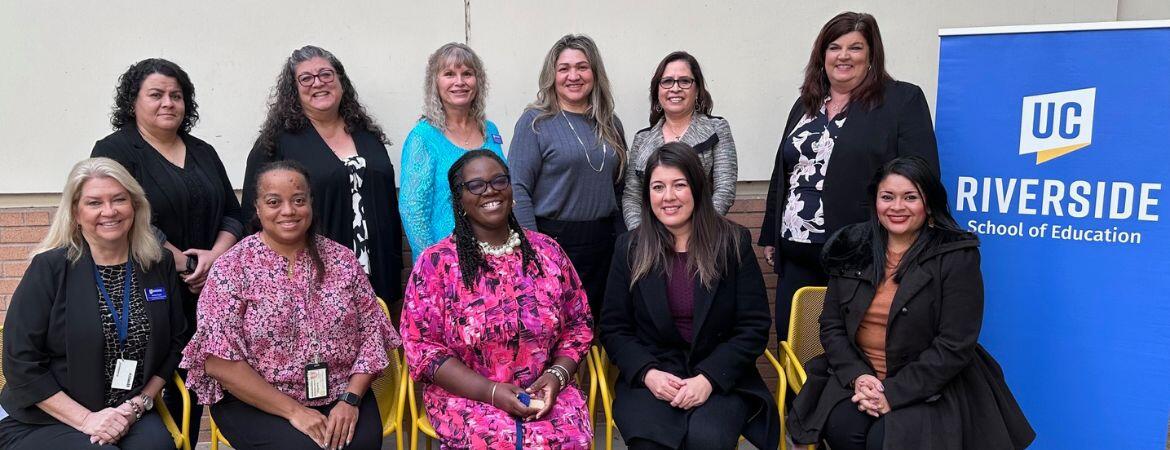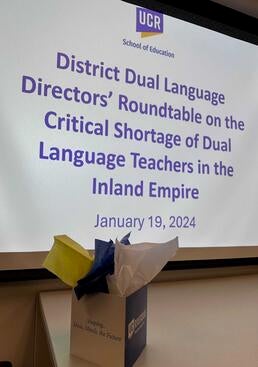
The School of Education's Teacher Education Program (TEP) recently hosted a roundtable on the critical shortage of teachers in dual language immersion (DLI) programs, where instruction is provided in English as well as in Spanish. Directors from school districts in the Inland Empire and Coachella Valley who are responsible for supporting the district's DLI programs attended and shared the challenges they face in fully staffing their programs, especially at the secondary level.
With the Commission on Teacher Credentialing requiring DLI teachers to possess a Bilingual Authorization (BILA) to teach in a language other than English, State Superintendent Tony Thurmond's Global California 2030 Initiative, which seeks to triple the number of DLI teachers prepared by 2030, and to support these districts to meet their DLI staffing challenges, the TEP has expanded its BILA program. This year, the number of TEP credential candidates earning their BILA has tripled. Previously, BILA students were exclusively elementary credential candidates; this year, secondary and special education credential candidates are also among those earning their BILA.
This increase in the number and the diversity of credential candidates earning their BILA, although welcomed and applauded by the districts, has presented a challenge for the TEP: finding student teaching placements in DLI programs, especially for their secondary candidates. At the roundtable, the TEP staff highlighted the mutually beneficial relationship between the districts who partner with the TEP by offering student teacher placements in their DLI programs, as it provides them the opportunity to consider hiring the BILA candidates upon completion of their student teaching to address the shortage of DLI teachers in their district.
To facilitate this level of partnership, the district representatives were asked by the TEP to create a channel of communication with their staff responsible for making student teacher placements. Providing the staff with a list of the school sites with DLI programs, the names of elementary and secondary teachers who are eligible and willing to welcome a student teach into their classroom, and, for secondary BILA placements, the subjects that are being taught in Spanish is vital so that BILA candidates can be placed appropriately and provide them the opportunity to gain experience teaching in Spanish.
“The TEP is grateful to the district representatives for joining us for this very important roundtable,” said Kris Nicholls, the Bilingual Program Coordinator for the UCR SOE, “ and we look forward to increasing the number of BILA candidates being placed as student teachers in their districts in 2024-2025.”
The districts requested that the TEP consider gathering them together biannually to continue to strengthen the partnerships with TEP and support their networking to learn more about the development and implementation of their secondary DLI programs.
For more information, contact:
Kris Nicholls, Ph.D.
Bilingual Program Coordinator and Lecturer
School of Education, Teacher Education Program
University of California, Riverside
951.809.3675
